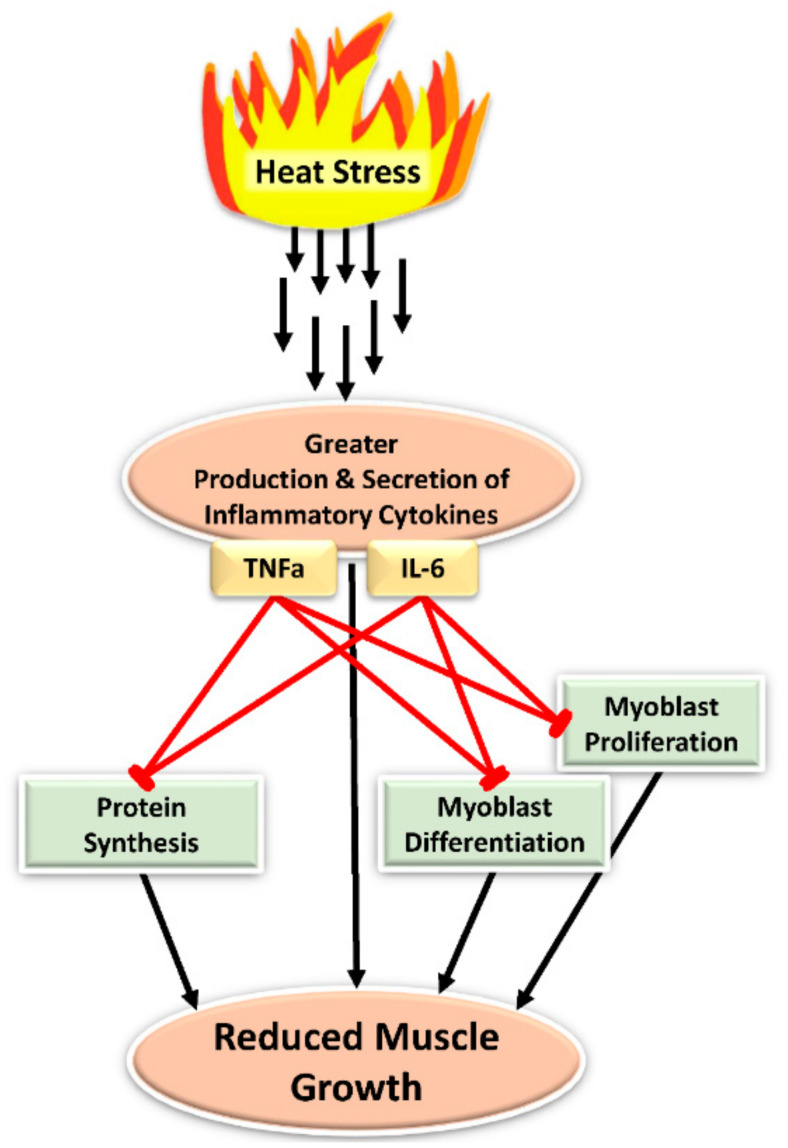Figure 3.
Heat stress-induced inflammatory factors interfere with the major processes that facilitate muscle growth. Specifically, heat stress increases circulating leukocyte populations [29,30,31,40,67], which in turn contribute to greater circulating inflammatory cytokines, including TNFα and IL-6 among others [91,92,93]. Exposure of myoblasts (i.e., muscle stem cells) to TNFα or IL-6 can reduce their proliferation and differentiation rates, which is detrimental to muscle growth [111,112]. Additionally, exposure of skeletal muscle itself to TNFα or IL-6 reduces its protein synthesis [119,120,121] in part by re-appropriating amino acid utilization [122].

